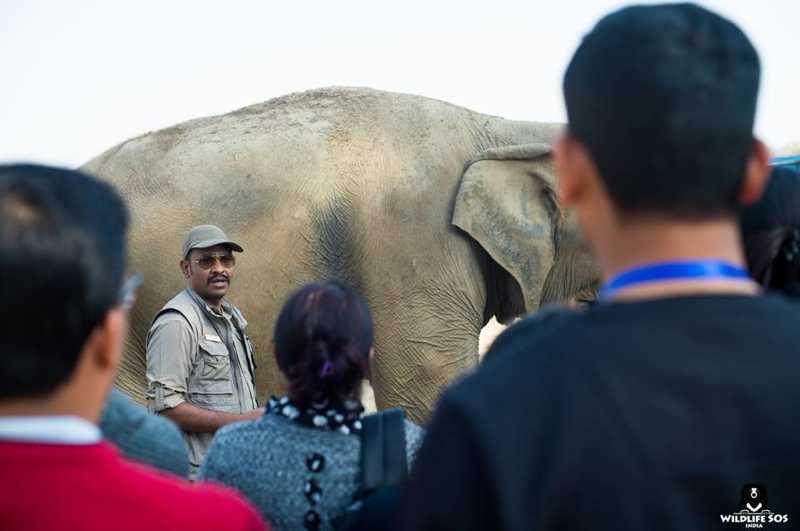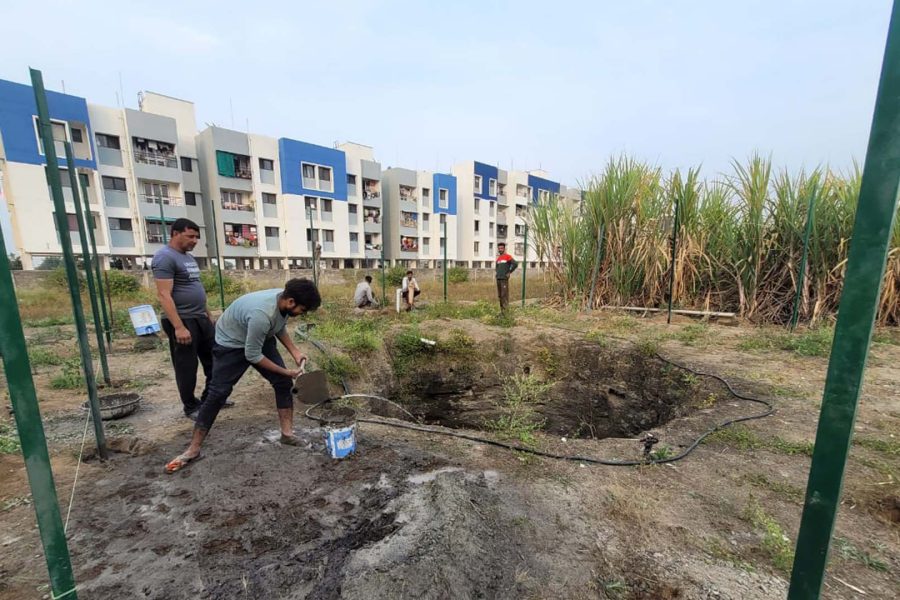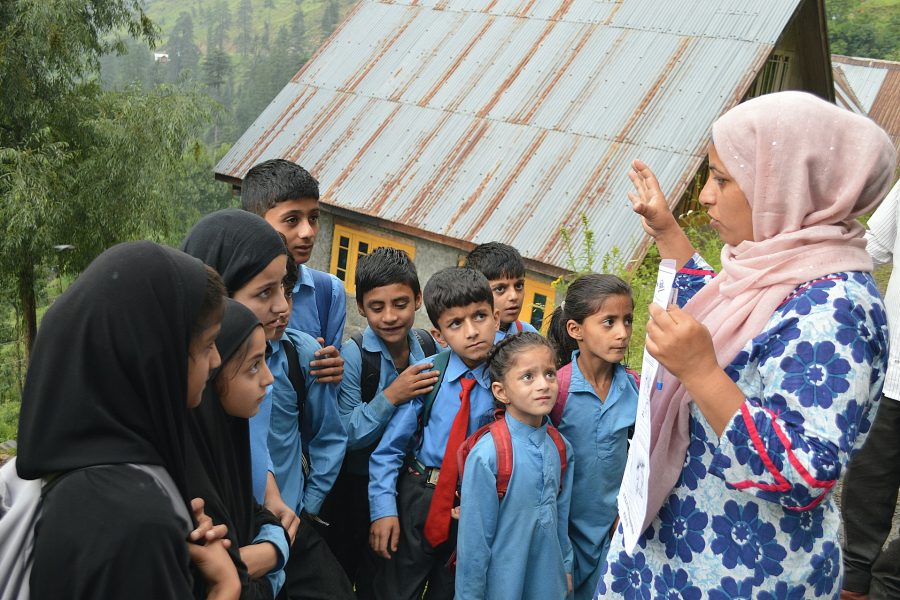Last month, the Wildlife SOS team in Agra played host to a group of government veterinarians from the north Indian state of Uttarakhand as part of an exposure visit and training program on Wildlife and Health Management by the Wildlife Institute of India with the aim of improving the skills of veterinarians in handling wildlife health emergencies. Accompanied by the senior veterinary scientist and course coordinator at WII, Dr. Parag Nigam, the group of 24 veterinarians was taken around our sloth bear and elephant rescue centres by senior staff and vets from Wildlife SOS.
At the Agra Bear Rescue Facility, the group sat through a documentary on the momentous rescue of over 600 of India’s dancing bears and the ending of the dancing bear trade in India due to the efforts of Wildlife SOS and its international partners. Our Director of Conservation Projects, Mr. Baiju Raj then talked to the group about Wildlife SOS’ work across the country and particularly at ABRF followed by a presentation by our senior veterinarian at ABRF, Dr. Ilayaraja. The group had the amazing opportunity to witness firsthand the treatment and care of the bears, as Dr. Ilayaraja sedated one of our rescued bears who was due for an ultrasound, and made excellent use of the opportunity to demonstrate the methods of tranquilisation and use of medical equipment like the ultrasound. The vets were also shown around the specialized Operation Theater at ABRF.
After lunch with the team, the group headed over to the Elephant Conservation and Care Centre where they started off their visit with an introductory video highlighting the plight of elephants illegally captured from the wild and sold into captivity, to provide context to the exposure visit by illustrating the backgrounds of the elephants we rescue.

Since the Elephant Conservation and Care Centre is home to 21 Asian elephants rescued from conditions of neglect, abuse and illegal captivity, the elephants in our care have a host of medical conditions including abscesses, foot and nail conditions, ophthalmological issues, and issues associated with malnutrition and old age that are treated by our team of full-time veterinarians, along with regular medical checkups of the elephants. The visiting group was given the unique opportunity to engage with the vets about their work while watching a demonstration of the humane and scientific positive conditioning based Target Training of our bull elephant Sanjay to explain practically the challenges of treating such large wild animals in the field and the measures we use to keep our elephants and our staff safe during veterinary treatment without having to resort to negative reinforcement practices and abuse. The ECCC vets also demonstrated the weighing of an elephant and the technique of drawing blood from an elephant as part of regular medical assessments to maintain records and keep tabs on the health of the elephants.
In all, the visit proved quite productive and everyone seemed quite fulfilled with everything they had witnessed and learned, as the group departed from the centre. Wildlife SOS is always honoured to have visitors from various fields of animal care and conservation visit our rescue centres and exchange ideas, knowledge and experience to ensure better care for India’s wild animals.




